PM: We have chance to defend interests differently
The Serbian parliament's session on an agreement with Priština was opened by Prime Minister Ivica Dačić around 11:00 CET.
Friday, 26.04.2013.
12:45

BELGRADE The Serbian parliament's session on an agreement with Pristina was opened by Prime Minister Ivica Dacic around 11:00 CET. He started the debate by talking about determined framework the negotiators adhered to during the talks with Pristina. PM: We have chance to defend interests differently “These certainly were the most difficult political negotiations on Kosovo and Metohija because they were the first negotiations after Kosovo’s unilaterally declared independence and after the fact that a significant number of countries recognized the unilaterally and illegally declared independence,” the prime minister said. The Democratic Party of Serbia (DSS) MPs started interrupting the prime minister already at the beginning of his speech and were warned by Speaker Nebojsa Stefanovic. “If you have something to say, take the microphone. Am the head of the government and I speak on its behalf. I want to elaborate on the framework I moved within and that is that the EU Council determined two years ago that Kosovo was a key political criterion for further EU integration. The framework was also that Germany added parallel institutions as one of the conditions for its approval of Serbia’s EU integration. The prime minister stressed that many opportunities had been missed, adding that this was an opportunity to “try to defend our interests in a different way, instead of celebrating defeats as we have been doing for centuries”. Responding to the DSS MPs comments, he stressed that Kosovo had declared independence during their rule. “This is to be or not to be question but not only for northern Kosovo but for the entire Serbia. We are choosing whether we will tomorrow have Serbia with soup kitchens and choked up with tears or if it will be strong and prosperous,” Dacic pointed out. He added that the DSS MPs were a minority and that it did not mean that they were right but that they should respect the opinion of the majority and work in the interest of Serbia. “Someone had to do it, to get something out of nothing. We know it is too little, we know we have not had Kosovo for a long time, we do have a small part and of course we have preserved it,” the PM pointed out. According to him, the former governments did not do anything in the field and “they only kept saying Kosovo is Serbia”. The prime minister reiterated that Serbia needed life, not new victims. Dacic said that Serbia had not recognized Kosovo's independence by reaching the agreement in Brussels and that it had not capitulated. He added that the rejection of the agreement could have ended up with a “Kosovo storm”. He underscored that nobody in the EU had asked Serbia to recognize Kosovo’s independence and that Serbia would not have accepted it they had. “This is a temporary solution in the given situation and the best we could do,” the PM told MPs. “If someone sees this as a final solution I think they are entering a very problematic zone of what Pristina is trying to impose. We only agreed on a temporary arrangement,” he explained. Reiterating that the agreement was the best Serbia could achieve at the moment even though many were not satisfied, Dacic said that “in diplomacy, it is wisdom to get what you can”. “If we act differently, we can lose what we realistically got. What is the alternative? To abandon the negotiations and block the process, to isolate the country and to have international forums without presence? And the final result would be an exodus of Serbs,” he noted. “As long as Serbia sits at the negotiating table, it has a chance to improve the position, but if it walks away from the negotiating table- it will lose everything,” Dacic said. “This government did not want to allow and will not allow for that to happen,” the prime minister said, adding that this was the reason why the initial agreement should be regarded as a charter on Serbs' rights and freedoms. “It is easier for us to withstand insults and threats than to watch the suffering of our people,” he said, noting that by accepting the agreement, Serbia ensured a continuation of its EU integration which was of immense importance for the people and the state. He noted that no one either won or lost anything through this agreement, noting that the process aimed at resolving “the Kosovo knot” would be lengthy and difficult. “We are preserving the strength for that task, and not for quarrels,” the prime minister explained. He added that back in 1999, there were some who opposed UN Security Council Resolution 1244 and before that, many opposed the Dayton Treaty, and this was a time when many were accused of treason and later on, they swore by the documents. Dacic noted that the government had adopted the agreement with Pristina with the consent of Serbian President Tomislav Nikolic but that it had not been sufficient for the executive government alone to accept it, and the parliament had to agree also. “We have been entrusted with a historic responsibility and we will try to avoid it,” he pointed out. All parliamentary parties except for the DSS have stated that they will support the government’s report on the agreement with Pristina. Ivica Dacic (Beta, file) DSS: Act of betrayal The opposition Democratic Party of Serbia (DSS) believes that the Brussels agreement is an act of betrayal of national interests, DSS MP group whip Slobodan Samardzic stated on Friday and added that people need to state their opinion on the matter at a referendum. During the parliament debate on the government report on the course of the dialogue and the agreement with Pristina on the normalization of relations, Samardzic announced that a protest would be held at Belgrade's Republic Square on May 10 after which motion-signing in support of the referendum would be organized. He explained that the referendum is necessary so that the agreement could be overturned by peaceful and legal means so that its implementation could be prevented. Samardzic noted that DSS is against the agreement because the document was drafted on grounds of the Martti Ahtisaari plan on Kosovo's independence and is disastrous for Serbs in the province because they have to renounce their institutions which are at the same time the institutions of the Republic of Serbia. He stated that the agreement is unacceptable because it makes it possible for Kosovo to appear in talks on EU accession as an independent country. B92 Tanjug
PM: We have chance to defend interests differently
“These certainly were the most difficult political negotiations on Kosovo and Metohija because they were the first negotiations after Kosovo’s unilaterally declared independence and after the fact that a significant number of countries recognized the unilaterally and illegally declared independence,” the prime minister said.The Democratic Party of Serbia (DSS) MPs started interrupting the prime minister already at the beginning of his speech and were warned by Speaker Nebojša Stefanović.
“If you have something to say, take the microphone. Am the head of the government and I speak on its behalf. I want to elaborate on the framework I moved within and that is that the EU Council determined two years ago that Kosovo was a key political criterion for further EU integration. The framework was also that Germany added parallel institutions as one of the conditions for its approval of Serbia’s EU integration.
The prime minister stressed that many opportunities had been missed, adding that this was an opportunity to “try to defend our interests in a different way, instead of celebrating defeats as we have been doing for centuries”.
Responding to the DSS MPs comments, he stressed that Kosovo had declared independence during their rule.
“This is to be or not to be question but not only for northern Kosovo but for the entire Serbia. We are choosing whether we will tomorrow have Serbia with soup kitchens and choked up with tears or if it will be strong and prosperous,” Dačić pointed out.
He added that the DSS MPs were a minority and that it did not mean that they were right but that they should respect the opinion of the majority and work in the interest of Serbia.
“Someone had to do it, to get something out of nothing. We know it is too little, we know we have not had Kosovo for a long time, we do have a small part and of course we have preserved it,” the PM pointed out.
According to him, the former governments did not do anything in the field and “they only kept saying Kosovo is Serbia”.
The prime minister reiterated that Serbia needed life, not new victims.
Dačić said that Serbia had not recognized Kosovo's independence by reaching the agreement in Brussels and that it had not capitulated. He added that the rejection of the agreement could have ended up with a “Kosovo storm”.
He underscored that nobody in the EU had asked Serbia to recognize Kosovo’s independence and that Serbia would not have accepted it they had.
“This is a temporary solution in the given situation and the best we could do,” the PM told MPs.
“If someone sees this as a final solution I think they are entering a very problematic zone of what Priština is trying to impose. We only agreed on a temporary arrangement,” he explained.
Reiterating that the agreement was the best Serbia could achieve at the moment even though many were not satisfied, Dačić said that “in diplomacy, it is wisdom to get what you can”.
“If we act differently, we can lose what we realistically got. What is the alternative? To abandon the negotiations and block the process, to isolate the country and to have international forums without presence? And the final result would be an exodus of Serbs,” he noted.
“As long as Serbia sits at the negotiating table, it has a chance to improve the position, but if it walks away from the negotiating table- it will lose everything,” Dačić said.
“This government did not want to allow and will not allow for that to happen,” the prime minister said, adding that this was the reason why the initial agreement should be regarded as a charter on Serbs' rights and freedoms.
“It is easier for us to withstand insults and threats than to watch the suffering of our people,” he said, noting that by accepting the agreement, Serbia ensured a continuation of its EU integration which was of immense importance for the people and the state.
He noted that no one either won or lost anything through this agreement, noting that the process aimed at resolving “the Kosovo knot” would be lengthy and difficult.
“We are preserving the strength for that task, and not for quarrels,” the prime minister explained.
He added that back in 1999, there were some who opposed UN Security Council Resolution 1244 and before that, many opposed the Dayton Treaty, and this was a time when many were accused of treason and later on, they swore by the documents.
Dačić noted that the government had adopted the agreement with Priština with the consent of Serbian President Tomislav Nikolić but that it had not been sufficient for the executive government alone to accept it, and the parliament had to agree also.
“We have been entrusted with a historic responsibility and we will try to avoid it,” he pointed out.
All parliamentary parties except for the DSS have stated that they will support the government’s report on the agreement with Priština.
DSS: Act of betrayal
The opposition Democratic Party of Serbia (DSS) believes that the Brussels agreement is an act of betrayal of national interests, DSS MP group whip Slobodan Samardžić stated on Friday and added that people need to state their opinion on the matter at a referendum.During the parliament debate on the government report on the course of the dialogue and the agreement with Pristina on the normalization of relations, Samardžić announced that a protest would be held at Belgrade's Republic Square on May 10 after which motion-signing in support of the referendum would be organized.
He explained that the referendum is necessary so that the agreement could be overturned by peaceful and legal means so that its implementation could be prevented.
Samardžić noted that DSS is against the agreement because the document was drafted on grounds of the Martti Ahtisaari plan on Kosovo's independence and is disastrous for Serbs in the province because they have to renounce their institutions which are at the same time the institutions of the Republic of Serbia.
He stated that the agreement is unacceptable because it makes it possible for Kosovo to appear in talks on EU accession as an independent country.



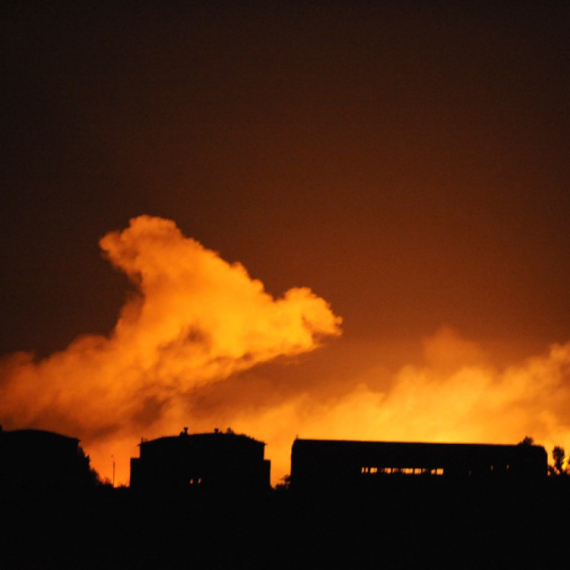








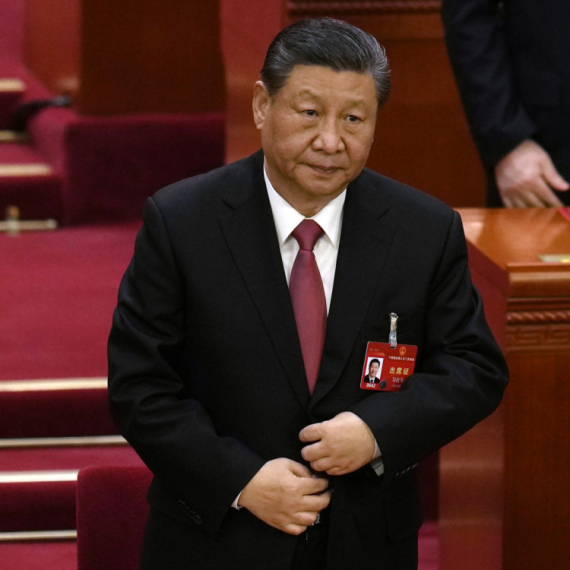




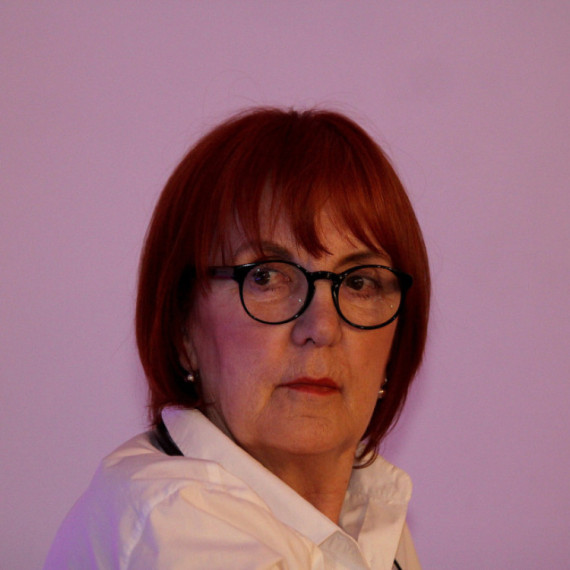










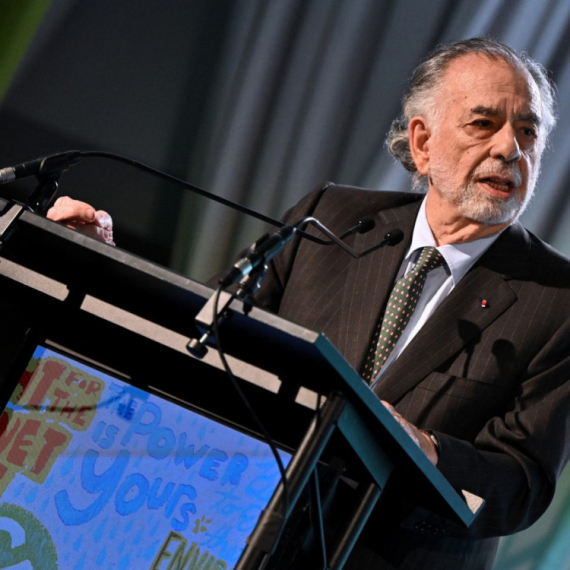









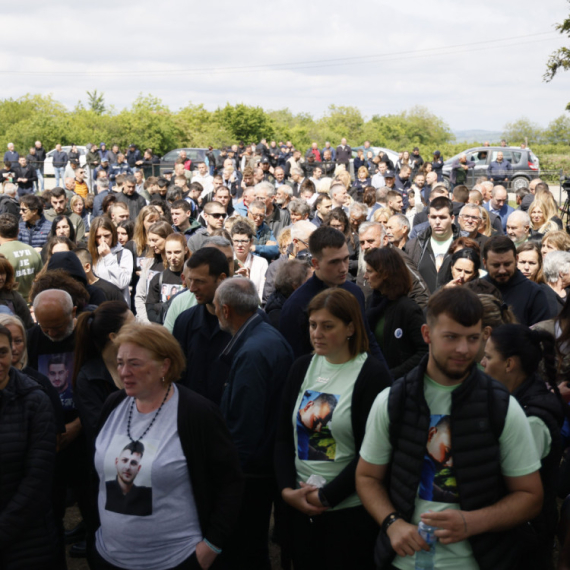
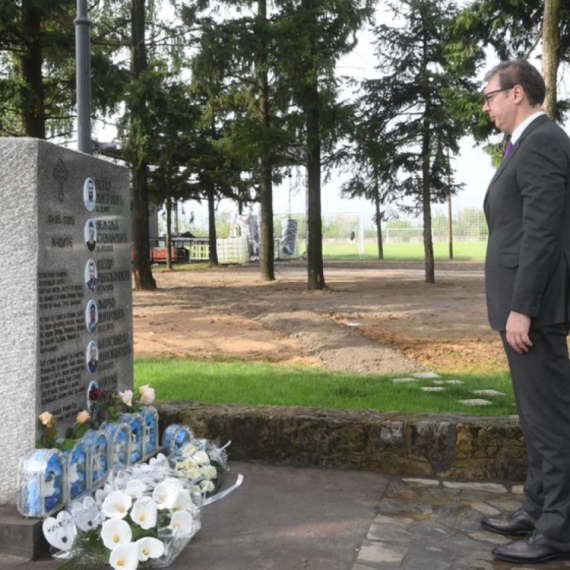

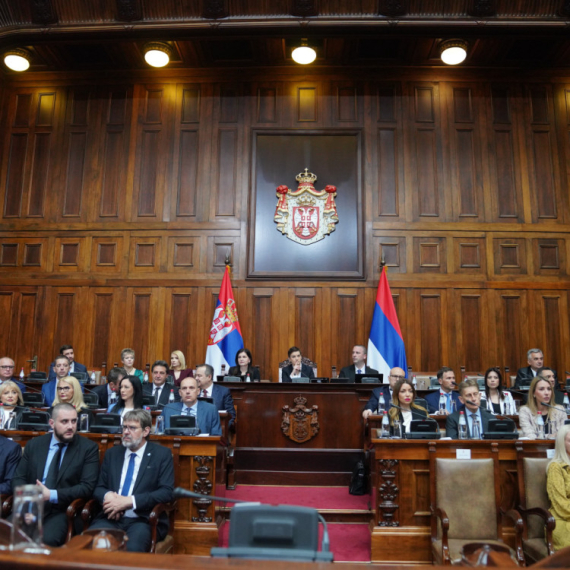








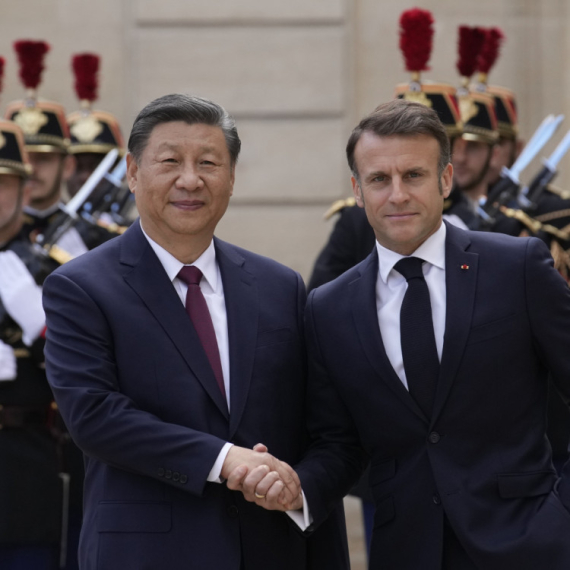



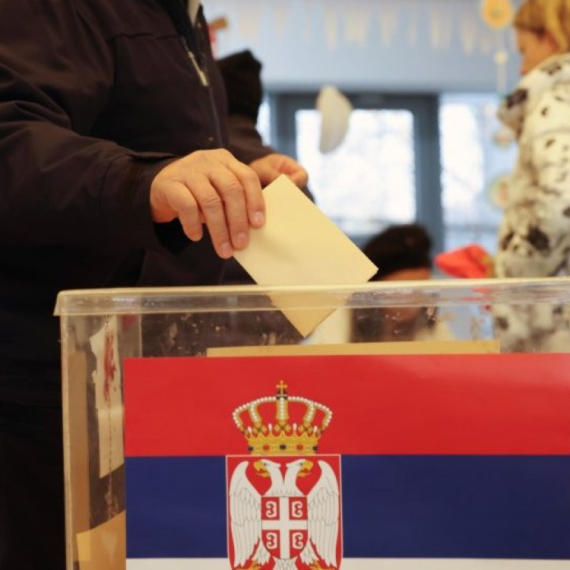
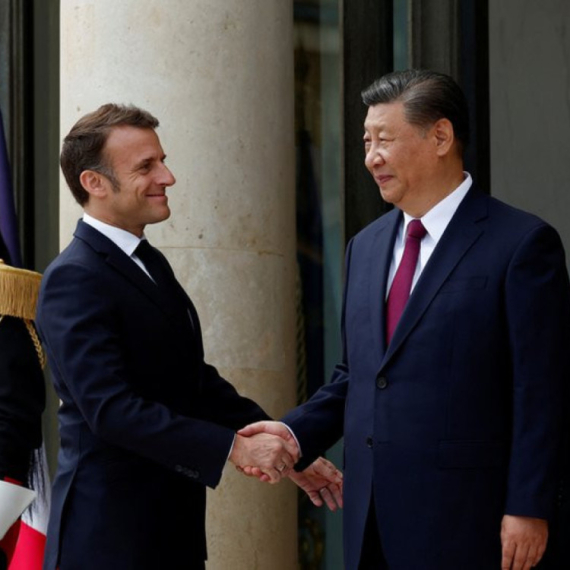


Komentari 56
Pogledaj komentare